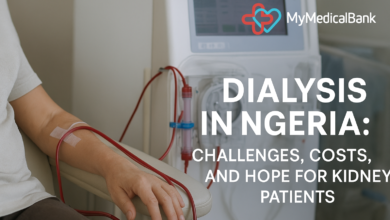Working as a Care Worker

There is a growing demand for care workers globally. In the UK, US, Canada, Ireland and other Western countries, the demand is driven by an aging population and the shortage of care workers to look after the growing elderly population. In developing countries like Nigeria, Philippines and Ghana, migration and urbanisation are driving the demand.
The shortage of care workers in the West in particular has necessitated the Governments in these countries to create various immigration routes so as to attract more care workers from all over the world. For instance, in February 2022, the UK Government added Carer Workers to the Shortage Occupation List making it possible for UK employers to recruit carers from outside the UK under the Health and Social Care Visa. You can read more about it here.
Similarly, in November 2022 the Irish Government announced the introduction of a visa scheme designed to attract 1,000 carers from January 2023 to help tackle shortage of homecare workers in the Republic of Ireland.

Who is a Care Worker?
A Care Worker is often known with other job titles like Caregiver, Carer, Care Attendant, Care Assistant, Personal Aide, Home Aide, Nursing Aide, Nursing Assistant, Auxiliary Nurse and Support Worker among others.
A Care Worker is a professional who provides personal care services for the elderly and vulnerable people to help them manage their daily activities and live as independently as possible.
The services provided will vary depending on the service user’s health, fitness and social condition. In general these services will include assisting the individual with bathing, toileting, grooming, dressing, feeding and maintaining personal hygiene. The work also includes assisting with mobility and transfers, taking medications, physiotherapy exercises, social escort and companionship, monitoring and documenting basic health information such as Blood Pressure, Temperature, Blood Glucose, fluid intake etc.
Where Do Care Workers Work?
Carers work in a wide variety of roles. They look after people in their own homes within the community (domiciliary care) as live-in carers (living with the person for a period of time) or as live-out carers (resuming for work daily or as required).
They also work in care homes or nursing homes (residential care) where they work under the supervision of managers to care for those who need extra support in their daily lives in those special residential homes.
Carers like health care assistants, nursing assistants or auxiliary nurses work under the supervision of registered nurses to provide care support for patients on admission in the hospital (in-patients) or patients attending outpatient appointments.
How Much Do Care Workers Earn?
Carers’ remuneration vary depending on the employer they work for, the job location, the care workload and the care’s experience. In the UK, the average carer salary is £24,103 per year or £12.36 per hour. On the average carers in the US earn $29,253 per year or $14.06 per hour. In Nigeria, carers are paid between N20,000 – N100,000 a month with the pay considerably higher in Lagos and other metropolitan areas than in the rural areas.
How Do You Become a Carer Worker?
Although many people would have provided care services for their loved ones at one point or another informally, to become a professional carer requires training. More important however is having a compassion and caring attitude.
In addition, unlike nursing, in general there are no regulatory bodies that regulate care workers or the qualification required to practice as one. Accordingly, anyone with any educational background can become a Care Worker as long as they can communicate effectively with the service users. However as with any job that involves looking after people, there are competencies and code of conduct required of the care workers.
Training in this regard enables prospective carers to acquire the requisite knowledge, skills and competences required to provide professional care services in ways that promote the dignity, privacy and wellbeing of the service users. Training accompanied with a care certificate therefore demonstrates to prospective employers that the individual has met this vital requirement and can be further trained if required.
Training in caregiving typically covers care standards and code of conduct that a carer needs to operate by. Through the training, participants are taught theories of basic human needs, basic human anatomy and physiology, moving and handling, basic healthcare monitoring, use of homecare equipment and basic life support among others.
Caregiving training typically comprises lectures, simulations, role plays, practical and internship or field work to gain hands on work experience. The lectures component is usually delivered online or in-person (classroom) over a period of 1-2 weeks followed by internship in a care home, hospital or Domiciliary care over a period of 1-12 weeks.
If you would like to participate in care training or you would like your employees or domestic aides to be trained, you can click here to enroll in MyMedicalBank care training in-person or online.
Finding Care Jobs
As with many other sectors, the internet is a good place to find care jobs. While a simple search for “care jobs” in Google, Bing or other search engines will throw up numerous job vacancies, there are also specific job websites where job carers can be found. In the UK, examples of these sites are Communitycare.co.uk, Socialcare.co.uk, Carehome.co.uk and Apps.trac.jobs. In Nigeria, one of such popular sites is Health Jobs.
You can secure care jobs can by registering with care recruitment agencies who supply carers to private clients, care homes, nursing homes and hospitals in their host countries. Certified Home Care Attendants in Nigeria for instance can register as a ‘Health Worker’ on MyMedicalBank website or MyMedicalBank app where they will be notified and deployed for care job opportunities nationwide as they become available.
MyMedicalBank is Nigeria’s #1 health management platform for booking appointments, medical tests, home care, telemedicine and other healthcare services from hospitals, clinics, medical laboratories, HMOs, care organisations and other providers. For enquiries, go to www.mymedicalbank.com/contact, send an email to [email protected] or call +234 (0) 802 759 0165.




One Comment